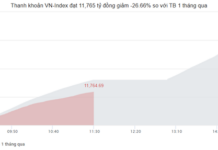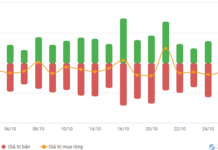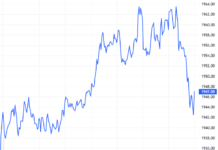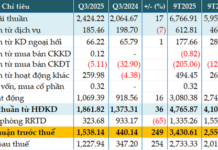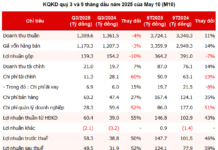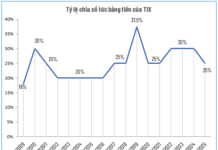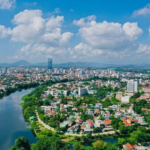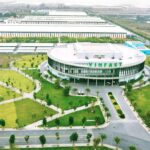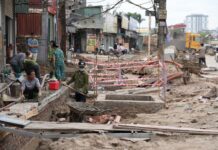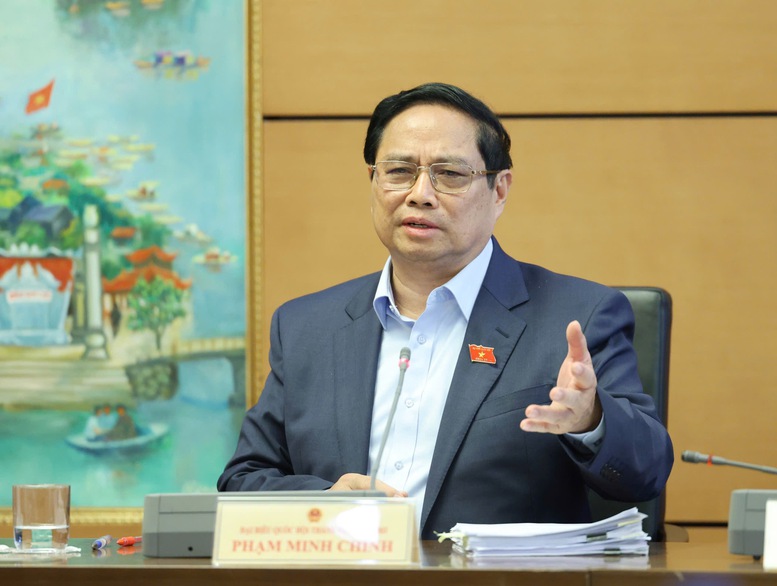
Prime Minister Pham Minh Chinh suggests reviewing the bill with a spirit of innovation, decentralization, and market-oriented management, designing tools to prevent corruption, negativity, and wastefulness, and encouraging innovation. He firmly states that the mindset of “if it can’t be managed, it should be banned” must be abandoned – Photo: VGP/Nhat Bac
Firmly Abandon the Mindset of “If It Can’t Be Managed, It Should Be Banned”
Regarding the Law on State Capital Management and Investment in Enterprises, Prime Minister Pham Minh Chinh mentioned several issues related to both perspectives and specific content.
Firstly, the Prime Minister pointed out that Vietnam is a developing country with a transitioning economy, a modest economic scale, high openness, and limited resilience to external shocks. Therefore, it is crucial to have mechanisms and policies that maximize and efficiently mobilize various legal sources of capital and resources for development, including state resources, resources from the people, social resources, bond issuance, loans, and public-private partnerships.
To achieve this, legal provisions must enable agencies, organizations, and individuals entrusted with responsibilities to clearly understand what is lawful and what is not, thereby encouraging innovation. This is extremely important for the development of the economy in the country’s new phase of growth, propelling Vietnam into a new era of prosperity and strength, with a happy and prosperous populace.
This calls for a transformation in thinking, approaches, and operations, drawing on practical experience. What works should be continued and improved, while challenges and obstacles must be addressed, and difficulties must be overcome. As situations evolve, tasks, methods, and organizations must adapt and align with Vietnam’s conditions and circumstances.
The Prime Minister reiterated the view that resources stem from thinking and vision, while motivation arises from innovation and creativity. Furthermore, strength emanates from the people and businesses, and innovation enables soaring heights, creativity fosters far-reaching progress, and integration propels development.
However, innovation, creativity, and integration must be grounded in the specific conditions and circumstances of our country within the current international context. This involves harnessing the power of the nation and the era, as well as the strengths within and outside the country. The process of innovation, creativity, and resource mobilization should primarily rely on internal forces, including people, nature, historical and cultural traditions, and mechanisms and policies.
The Prime Minister affirmed that appropriate mechanisms and policies, aligned with the country’s specific circumstances and the trends of the times, can double or even triple our strength, facilitating state transformation and turning the tide. He cited the example of the “khoán 10” and “khoán 100” policies, which enabled Vietnam to transition from a rice importer to a rice exporter.
Turning to issues related to the draft law, the Prime Minister acknowledged that throughout different historical periods, Vietnam has implemented various models for managing state-owned enterprises, each suited to the requirements of its time. However, the model has not yet stabilized as we are still in a state of transition and economic development. We are in the process of shaping a suitable model, learning and refining as we go, gradually expanding without striving for perfection or rushing.
While there have been achievements and positive aspects since the implementation of the model of the State Capital Management Committee, there are also shortcomings that necessitate further reflection and evaluation. The Prime Minister expressed the view that enterprise operations must follow market principles, respecting the laws of supply and demand, value, and competition, without administrative intervention.
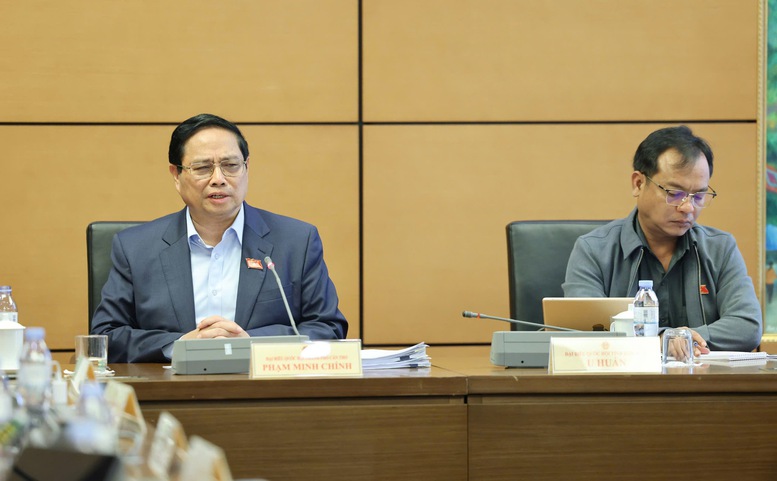
The Prime Minister reiterated the view that resources stem from thinking and vision, while motivation arises from innovation and creativity. Furthermore, strength emanates from the people and businesses, and innovation enables soaring heights, creativity fosters far-reaching progress, and integration propels development – Photo: VGP/Nhat Bac
“Such intervention would distort the market. It is not the role of administrative agencies to intervene, as it goes against the laws, thinking, and development. State-owned enterprises should be managed according to market mechanisms, international integration, and suitability to Vietnamese conditions,” stated the Prime Minister.
Regarding the business plans of state-owned enterprises, the Prime Minister proposed that the law should stipulate that the board of directors is accountable before the law for its decisions, ensuring the preservation and development of state capital. The State Capital Management Committee should provide direction and possess tools for monitoring and supervision to prevent waste, negativity, and corruption. However, he also noted that legal provisions must be clear to enable those executing them to be creative without fear.
The Prime Minister emphasized the need to promote decentralization, with clear regulations in the law. Public investment should follow the Law on Public Investment, while investment using state-owned enterprise capital should be decided by the board of directors, who will be held accountable for their investment decisions without having to seek approval from administrative levels.
According to the Prime Minister, the critical factors for success in any endeavor are time, intellect, and timely decisions. Citing the view of General Secretary To Lam on combating wastefulness, including the waste of time, the Prime Minister affirmed that time is money, and “dithering” by seeking an additional administrative level will result in time wastage.
The Prime Minister agreed with the reviewing agency that when evaluating state-owned enterprises, a comprehensive assessment of their value creation should be conducted, based on overall efficiency, rather than evaluating each task individually. This approach fosters an environment that encourages innovation and a bold mindset. The Prime Minister provided an example: out of ten assigned tasks, a state-owned enterprise might not perform well in 2–3 tasks and incur losses, but if the “overall picture is positive,” with capital preservation and development, it should be considered a success.
The Prime Minister also suggested that the draft law should clearly define the management scope, whether it extends to 100% state-owned enterprises (F1 enterprises) or to F2, F3, and F4 enterprises, and the individuals directly responsible. The management approach should be similar to the Central Government’s management of provinces, provinces’ management of districts, and districts’ management of communes, where higher levels do not make decisions on behalf of lower levels. Localities decide, act, and take responsibility. State-owned enterprise management should follow this principle, without deep intervention in F3 and F4 enterprises.
In summary, the Prime Minister requested a review of the bill with a spirit of innovation, decentralization, and market-oriented management, designing tools to prevent corruption, negativity, and wastefulness, and encouraging innovation. He firmly states that the mindset of “if it can’t be managed, it should be banned” must be abandoned. Ministries and sectors should fulfill their state management responsibilities through various tools such as programs, plans, laws, mechanisms, policies, monitoring, inspection, emulation and reward movements, and experience summation.
“When the Law is issued, some existing obstacles should be removed, some practical issues that lack regulations should be addressed, and outdated provisions that are no longer suitable for reality should be removed. The spirit is to closely follow reality, originate from reality, respect reality, and take reality as the yardstick,” emphasized the Prime Minister.
The Prime Minister provided an example of a funding partner offering a $300 million loan for the construction of a power transmission line. However, if the capital is allocated to the parent company, there won’t be enough counterpart funds, and if it is allocated to a subsidiary, there will be legal obstacles, even though the subsidiary has sufficient capital to execute the project. As a positive example, the Prime Minister mentioned several prolonged projects (such as Thai Binh 2 or the Lô B gas-fired power chain) that were successfully resolved by boldly allowing enterprises to make their own decisions.
Recognizing the existing regulations’ limitations, the Prime Minister proposed that what is already mature, clear, and proven effective in practice, with broad consensus, should be included in the law. For matters that are still evolving and unstable, the Government should be authorized to make decisions, gradually expanding and refining through practice without striving for perfection or rushing. This approach will harness the power of millions of billion dong of state capital in enterprises, enabling state-owned enterprises to increase investment and take responsibility before the law, the Party, the State, and the people. Management based on outdated thinking will hinder development, the Prime Minister emphasized.
A Province to Merge Two Districts Upon Becoming a Centrally-Governed City
Upon its establishment, the city was envisioned with a plan to comprise nine administrative districts.
What Challenges Lie Ahead for the 2025 Growth Target?
The National Assembly has recently approved an ambitious GDP growth target of 6.5-7% for 2025, striving for an even higher 7-7.5%. With the global economy still fraught with uncertainties, what makes Vietnam confident in aiming for such robust growth? And what potential challenges lie ahead in achieving this lofty goal?

